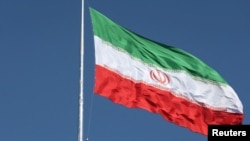A significant factor in the fall of Bashar al-Assad in Syria was the lack of help he received from allies that had propped up his regime and kept him in power for decades: Russia, Iran and Hezbollah.
As Islamist rebels swept through Syria’s cities, Assad’s backers failed to come to his assistance; they were distracted or severely weakened: Russia by the war in Ukraine; Hezbollah and Iran after defensive actions taken by Israel, the United States, and other allies, following Iranian and Hezbollah attempts to expand the war against Israel.
To a considerable extent, the Middle East has been transformed, noted National Security Communications Advisor John Kirby in an interview with Voice of America.
“As Iran wakes up and looks at the region, it is different, and their axis of resistance has been broken in many, many places. ... And they too, have been weakened as a military and as a capability, just in terms of air defense,” he said.
State Department Spokesperson Matthew Miller said it is not clear what judgement Iranian leaders will make about the new reality:
“If I were them, I would look back at the course of action that they have pursued over the last decade-plus of trying to support terrorism and further destabilize the region as a strategy that has failed. When you look at their support for proxy groups, they clearly had a strategy that they were pursuing to try and threaten the state of Israel from outside its borders to launch repeated terrorist attacks against civilians inside Israel and, of course, to launch terrorist attacks against other entities around the region.”
Spokesperson Miller expressed the hope that Iran would look at its failed policy and choose the path of de-escalation and discontinue attempts to foment instability and support terrorism.
“I’m under no illusions that they’re going to have a change of heart, but I would think that would be the wiser assessment,” he said.
A recent report by the U.S. Director of National Intelligence noted that there has been public debate in Iran recently about the deterrent value of nuclear weapons. The DNI also reported that Iran currently has enough fissile material for over a dozen of such weapons. State Department Spokesperson Miller reiterated and emphasized long-standing U.S. policy: “We will not allow Iran to obtain nuclear weapons.”






